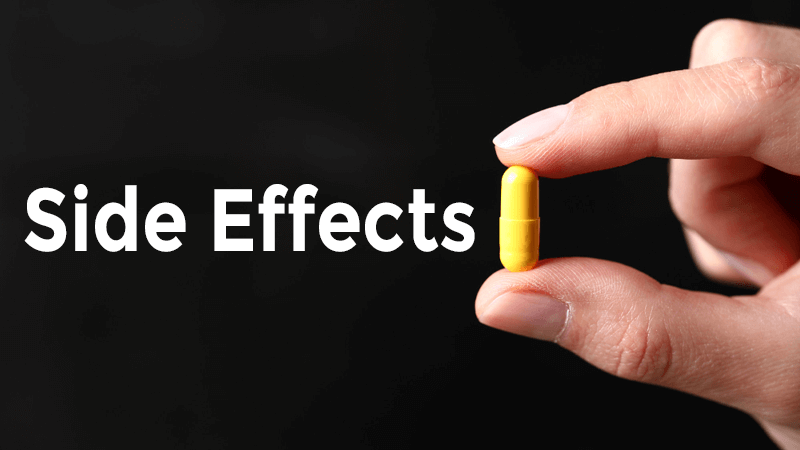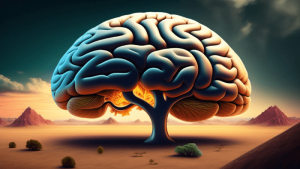
ADHD Supplement Side Effects
ADHD supplements typically contain stimulants, such as caffeine or amphetamine-based drugs like Adderall. Stimulant medications can cause a variety of side effects including insomnia, loss of appetite, headaches, irritability, nausea, and dizziness. They may also increase blood pressure and heart rate.
Non-stimulant ADHD supplements may have fewer side effects but they also tend to be less effective than stimulants for treating the symptoms associated with ADHD. Some other potential side effects of non-stimulant treatments include abdominal pain, anxiety, and sleep disturbances. It is important to talk to your doctor before taking any medication or supplement for ADHD in order to ensure that it is safe for you and won’t interfere with any existing conditions or medications that you are currently taking.
ADHD supplements Nootropics can be a great option for those looking to manage their symptoms, however it is important to be aware of the potential side effects that may come with them. Common side effects associated with ADHD supplements include headaches, irritability, increased heart rate and blood pressure, dizziness, and insomnia. It is always best to talk to your doctor before beginning any type of supplement regimen in order to ensure you are taking the right dosage and not experiencing any dangerous or severe side effects.
Is It Safe to Take ADHD Pills?
ADHD pills can be a safe and effective way to manage symptoms of Attention Deficit Hyperactivity Disorder. The benefits of taking ADHD medication include :
- Improved concentration and focus.
- Reduced impulsivity.
- Increased ability to follow through on tasks.
However, it is important to remember that each person may respond differently to different medications, so consulting with a doctor or psychiatrist is key when deciding if this type of treatment is right for you.
Is It Ok to Take ADHD Medication Every Day?
Yes, it is OK to take ADHD medication every day. Taking the correct dose of prescribed medication can be beneficial in helping manage symptoms such as:
- Difficulty paying attention
- Impulsivity
- Hyperactivity.
It is important to follow your doctor’s instructions and consult with them if you have any questions or concerns about taking ADHD medication daily.
What are the Side Effects of ADHD Slow Release Medication?
The most common side effects of ADHD slow-release medication may include: – Headaches – Stomach aches
- Weight loss or gain
- Sleep disturbances
- Decreased appetite.
These medications can also cause other more serious side effects, including changes in behavior and mood, heart palpitations, and seizures. It is important to speak to a doctor if any of these symptoms occur while taking ADHD slow-release medication.
What are the Negative Side Effects of ADHD?
ADHD is a disorder that affects attention, behavior, and development. It can lead to difficulties in school or work performance, social interactions, and emotional regulation. While ADHD can be managed with treatment and lifestyle changes, there are also some negative side effects associated with it:
- Difficulty concentrating: People with ADHD may have difficulty focusing on tasks for extended periods of time.
- Impulsivity: Those with ADHD often act without thinking before considering the consequences of their actions.
- Low self-esteem: People living with this condition may struggle to feel good about themselves due to the struggles they face in daily life.
- Emotional instability: Because of poor impulse control and difficulty regulating emotions, individuals with ADHD may become easily overwhelmed or frustrated when faced with stressful situations.
These negative side effects can make living with ADHD difficult but through proper management techniques such as medication and therapy, many people are able to live fulfilling lives despite these challenges.
Do ADHD Pills Make You Gain Weight?
ADHD medications, such as stimulants and non-stimulants, can cause weight gain in some people. Here is a look at why this happens:
- Appetite increase: Stimulant medication may increase appetite leading to overeating.
- Metabolism changes: Non-stimulant drugs are known to slow down metabolism which can result in weight gain over time.
- Insomnia disruption: Stimulant medications may disrupt sleep patterns that can lead to fatigue and poor eating habits.
Weight gain should be monitored closely if you take ADHD medication and lifestyle modifications like dieting and exercise should be considered if necessary.
Side Effects of ADHD Medication Adults
Adults with ADHD may experience side effects from medication, some of which can be severe and require medical attention. Common side effects include insomnia, decreased appetite, weight loss, dry mouth, and headaches. Some individuals may also experience increased blood pressure or heart rate as well as difficulty sleeping or concentrating.
It is important to speak with a doctor about any concerns or questions regarding the potential side effects of ADHD medications for adults.
Hidden Dangers of ADHD Medications
ADHD medications can be incredibly helpful in helping those with ADHD to manage their symptoms and lead a more productive life. However, they come with some hidden dangers that must be taken into consideration before starting any medication regimen. These side effects include weight loss, insomnia, headaches, and even an increased risk of heart attack or stroke.
It is important to discuss possible risks with your doctor prior to taking these medications so that you can make the best decision for your health and well-being.
Side Effects of ADHD Medication in Child
ADHD medication can be an effective way to help regulate a child’s behavior, but it is important to note that there are some potential side effects. These can include decreased appetite, insomnia, headaches, and stomach pain. Additionally, long-term use of ADHD medications may lead to slowed growth in children.
It is always best to consult your doctor before starting any new medication for your child as they will be able to provide guidance on the risks and benefits associated with its use.
ADHD Pills Side Effects
ADHD pills have been known to cause a variety of side effects, ranging from mild to severe. Common side effects include insomnia, decreased appetite, dry mouth, nausea/vomiting, headaches, and dizziness. More serious side effects may include an increase in blood pressure or heart rate as well as psychiatric symptoms such as irritability and mood swings.
It is important to consult with your doctor if any of these side effects are experienced while taking ADHD medication so that the appropriate steps can be taken.
Long-Term Effects of ADHD Medication on the Brain
Research has found that long-term use of ADHD medication can actually lead to positive changes in the brain, including an increase in dopamine receptor density and improved functioning of certain neurotransmitter systems. These changes may help improve focus, attention span, and impulse control in individuals with ADHD over the long term. Additionally, this research suggests that regular use of these medications could potentially reduce symptoms associated with ADHD such as hyperactivity and impulsivity.
ADHD Zombie Effect
The “ADHD Zombie Effect” is a term used to describe the feeling of being in an almost zombie-like state when someone with Attention Deficit Hyperactivity Disorder (ADHD) has been overstimulated or experienced too much mental activity. This can leave them feeling exhausted and unable to focus, resulting in difficulty completing tasks or carrying out normal daily activities. The zombie effect often occurs after long periods of concentration or multitasking and can make it hard for those with ADHD to stay motivated, present, and productive.
Long-Term Side Effects of ADHD Medication
ADHD medications are generally considered safe and effective, but they can have some long-term side effects. These may include decreased appetite, insomnia, nausea or vomiting, headaches, irritability and restlessness. Additionally, stimulant medications can cause weight loss or slowed growth in children.
If your child is taking ADHD medication for an extended period of time it is important to monitor their health closely and speak with a doctor about any concerns you may have.
Before And After ADHD Medication
ADHD medication can be a powerful tool for managing symptoms of Attention Deficit Hyperactivity Disorder (ADHD). Before beginning treatment, it is important to discuss the potential risks and benefits with your doctor. After starting ADHD medication, people often report improved focus, increased energy levels, better organizational skills, improved academic performance, and decreased impulsivity and hyperactivity.
While these medications are not a cure-all for ADHD symptoms, they can provide significant relief from the daily challenges associated with living with this disorder.



